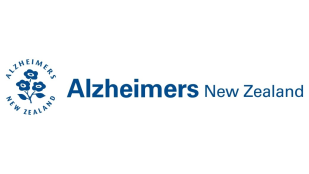Otago’s Minds Together showcases power of intergenerational relationships
Monday 6 May, 2024 www.alzheimers.org.nz Blog
A new, intergenerational programme ‘Minds Together’ has both people living with dementia mate wareware and university students so excited that they’re doing it all again.
Alzheimers Otago Manager Antoinette McLean shared the organisation’s journey alongside the Social Impact Studio at the University of Otago to get the programme underway. She shared this journey at the recent Alzheimers NZ one-day event Repositioning Dementia: Seeking solutions.
Sparked from a chance meeting with a student volunteer at the Social Impact Studio, Minds Together has since grown into a successful programme. Ten people living with early-stage dementia mate wareware have been paired up with ten students since the pilot in 2023.
The students were looking to enhance their social impact while Antoinette was looking for an innovative way to provide peer support for their clients with limited funding.
The studio already runs a successful ‘Aspire’ programme which pairs year seven and eight students with university students to help them stay excited about learning. This supported the foundation for Minds Together.
“I’m passionate about intergenerational relationships. The research shows similar programmes improve wellbeing, restore purpose and bring joy to older participants while helping to develop the social skills and confidence and empathy in young people,” says Antoinette.
Minds Together is an eight-week programme on the University of Otago campus. Each two-hour session starts with a morning tea, followed by an activity that is often hosted by an academic department.
The benefits of Minds Together include providing a stimulating learning opportunity for people living with dementia mate wareware, enhancing social interactions and ageless friendships and the increased awareness and understanding of dementia mate wareware. The sessions also gave care partners a few hours respite.
The feedback from everybody who was involved – from people living with dementia mate wareware to care partners and students – has been positive.
“You don’t always see the changes and effects on session. It’s what happens at home, and what you get from the care partners afterwards. They’re saying ‘they’re so animated, they’re so alive,’ before and especially afterwards – so it was really positive to see,” says Antoinette.
“The friendships that we saw develop were amazing and still continue, and we have got some of those students from last year volunteering for us now. By the end of the eight weeks they really didn’t want the programme to end.”
Following the success of the programme, there are now two programmes planned for delivery in 2024 with the first already underway.

